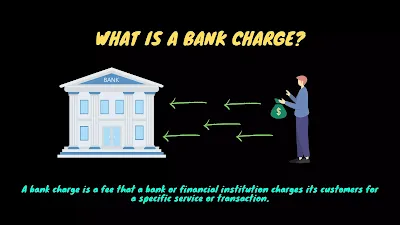What is a Bank Charge?
A bank charge is a fee that a bank or financial institution charges its customers for a specific service or transaction. These charges can include ATM fees, account maintenance fees, and overdraft fees, among others.
ATM Fees
ATM fees are charges that customers incur when they use an ATM that is not owned by their bank. These fees can be assessed by the bank that owns the ATM as well as the customer's own bank. For example, if a customer uses an ATM that is not owned by their bank, they may be charged a fee by both the ATM owner and their own bank.
Account Maintenance Fees
Account maintenance fees are charges that customers incur for maintaining their bank account. These fees can be assessed on a monthly or annual basis and can vary depending on the type of account. For example, a checking account may have a lower maintenance fee than a savings account. Some banks also offer account packages that bundle various services together and charge a flat fee for the package.
Overdraft Fees
Overdraft fees are charges that customers incur when they spend more money than they have in their account. This can happen if a customer writes a check for more than they have in their account or if they make a purchase with a debit card that exceeds the available balance. Overdraft fees can be quite costly, and some banks charge multiple fees for each transaction that causes an overdraft.
Other Types of Bank Charges
Other types of bank charges include fees for wire transfers, foreign currency transactions, and stop payment orders. Banks may also charge customers for replacing lost or stolen debit or credit cards, and for closing an account.


